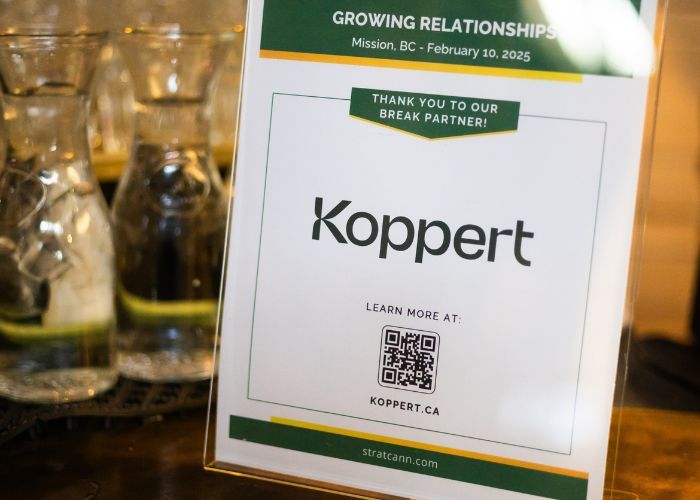
Growing Relationships 2025: Mission, BC Synopsis
As with all our Growing Relationships events, we started the day with our Regulatory Roundtable, which focused on issues the industry is currently navigating. Below is a recap of the discussion points, highlighting the challenges and solutions.
Discussion Summary
The cannabis industry in British Columbia continues to face significant challenges and opportunities, as highlighted in the Roundtable Discussion at Growing Relationships in Mission, BC.
Key issues revolve around regulatory hurdles, market access, taxation, and profitability. Stakeholders are keen to see improvements to the Direct Delivery program, marketing regulations, and overall industry fairness. Additionally, concerns were shared about consumer education, the need for more legal consumption areas, and fair access to financial services.
Below are the common themes from the discussion and their respective summaries.
Direct delivery remains a hot topic of discussion, with some of the highlighted issues being missing or incorrect product data, administrative inefficiencies, and high proprietary fees limiting the effectiveness of, and ability to participate in, the program.
Retailers also often face fulfilment challenges due to staffing and logistics constraints. Stakeholders suggest looking at alcohol distribution models to improve efficiencies and fairness in the cannabis industry. Additionally, restrictions such as the 30-gram purchase limit continue to make competing with the illicit market difficult.
Regulatory burdens, particularly around marketing and retail operations, continue to create obstacles to success. Current restrictions on advertising, loyalty programs, and product sampling hinder business growth potential and consumer engagement.
The industry is calling for more flexibility in marketing, including lifestyle marketing, brand visibility on packaging, and sponsorship opportunities, again citing the alcohol sector as an example of marketing in a regulated industry. The lack of legal consumption spaces such as cafes and age-gated events also limits consumer experiences and industry growth.
There is also a strong push for parents to be able to bring their children into cannabis retail stores as they do when purchasing alcohol.
Profitability remains a significant challenge across the industry, with businesses struggling due to high taxation and pricing compression. Stakeholders stressed the need for tax reform before addressing some of the more operational concerns.
Banking issues, such as payment delays, lending restrictions, and a lack of e-transfer and credit card options, exacerbate cash flow problems. Smaller businesses also face the added pressure of competing with the larger players and the illicit market, emphasizing the need for a more level playing field.
Consumer education is lacking, particularly around safe consumption and product selection. THC limits and lab-shopping practices (seeking higher THC percentages) continue to distort market dynamics, making it essential to continue to refocus consumers on quality over potency. It was also noted that biopesticide registration is also challenging, with Canadian processes being more complicated than those in the US.
The lack of legal consumption spaces continues to be a concern for some in the industry. There is demand for age-gated consumption areas at events, concerts, and cafes, for example, again highlighting the disparity between alcohol and cannabis. Addressing this would require both provincial and municipal guidance, as well as overcoming market-based financial challenges.
An emphasis was placed on properly reviewing contracts in sales and purchase agreements. Ensuring clarity in contracts can help avoid disputes and transaction delays and create more stability within the industry overall.
Conclusion
The discussions highlight ongoing calls for regulatory reforms, enhanced market access, and improved profitability within the cannabis industry.
Addressing taxation, direct delivery inefficiencies, and marketing restrictions will benefit businesses, particularly smaller producers and retailers, creating additional opportunities to combat the illicit market.
At the same time, we also heard from producers and retailers who are finding success with direct delivery and even some small-scale BC producers who are finding exports to be a crucial lifeline.
























